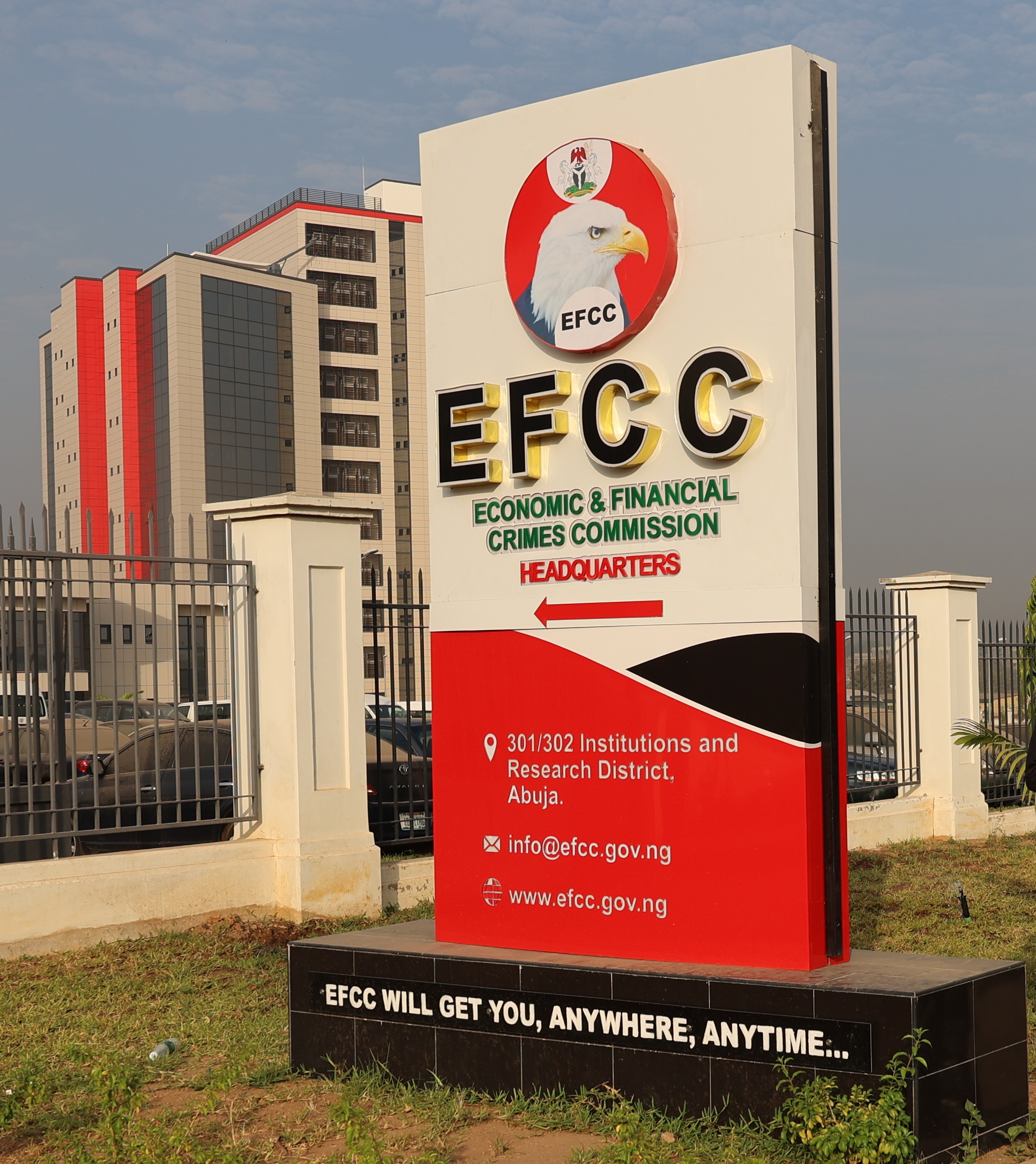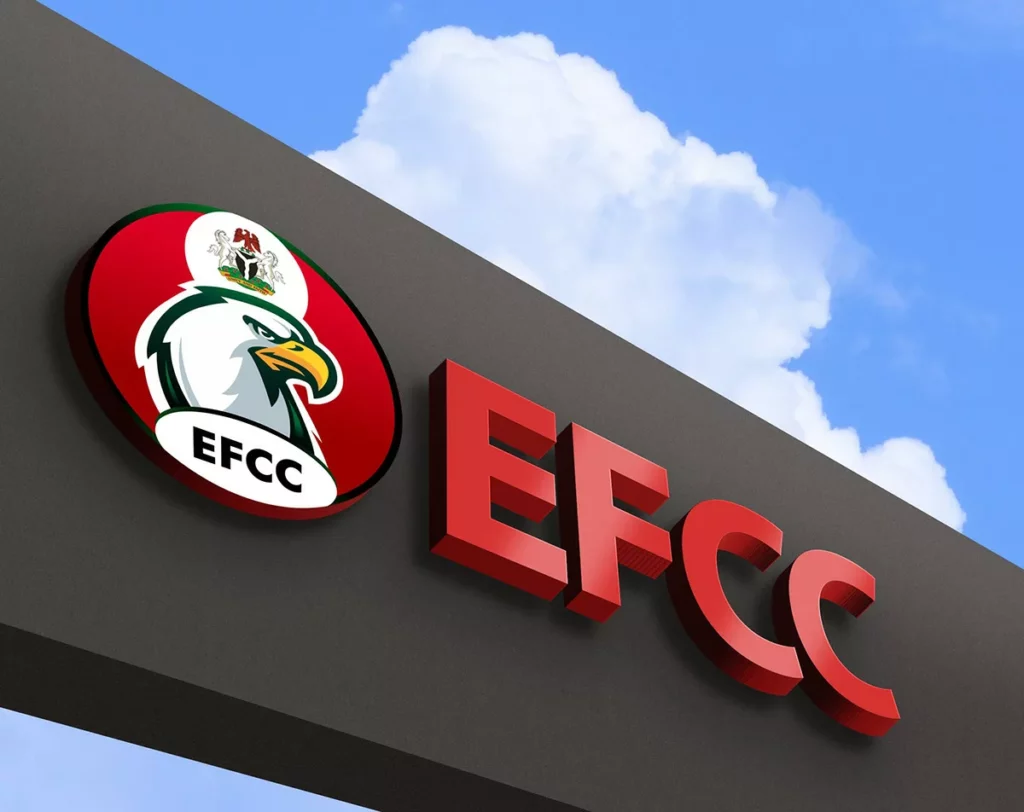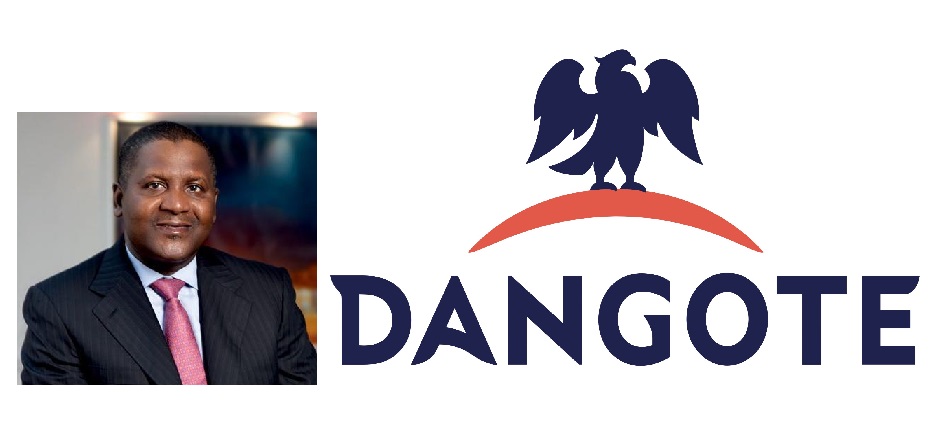In a dramatic turn of events, the Chairman of the Economic and Financial Crimes Commission (EFCC) and a top official face potential imprisonment for defying a court order in an ongoing legal battle.
The Contempt Notice: A Legal Showdown
The High Court of Justice in Bauchi State has issued a contempt notice (Form 48) against the EFCC Chairman and the Head of Economic Governance (EG1), Mr. Dare Folarin. The notice, dated March 12, 2025, warns that unless the EFCC officials comply with the court’s directive, they could be found guilty of contempt and face imprisonment.

This development stems from an ongoing legal battle between the EFCC and four applicants, including Aliyu Adamu. The court had previously issued an order restraining the EFCC from taking any action against the applicants until the suit was resolved. However, the EFCC allegedly defied this order, leading to the contempt notice.
The Alleged Defiance: EFCC Accused of Overreach
Barrister Ahmed Sani, counsel to the applicants, revealed that despite being served with the court order and the originating motion, the EFCC, led by Mr. Dare Folarin, continued to harass, intimidate, and eventually arrest Aliyu Adamu.
“In a blatant act of defiance, the EFCC team stormed our client’s office, seized documents, and arrested him, in clear violation of the court order,” Sani said. “This egregious abuse of power undermines our justice system and demands immediate attention.”
According to Sani, Folarin initially refused to accept service of the contempt notice, arguing that “the court cannot impede his work.” The court bailiff was reportedly forced to serve him by throwing the documents at him.
Resistance to Service: A Tense Encounter
The drama didn’t end there. Attempts to serve the EFCC Chairman with the contempt notice were allegedly met with resistance. Folarin reportedly chased the bailiff out of the EFCC premises and even threatened to detain him.
Despite these challenges, the bailiff successfully served the notice and later swore an affidavit confirming the service. Sani warned that if the EFCC and Folarin continue to disobey the court, the applicants will proceed with serving Form 49 and initiate full contempt proceedings.
The Implications: A Test of Judicial Authority
This case raises critical questions about the rule of law and the limits of executive power. The EFCC, as a key anti-corruption agency, wields significant authority, but its actions must align with judicial directives. The court’s contempt notice underscores the importance of respecting judicial orders, regardless of one’s position or mandate.
Barrister Sani emphasized the need for the EFCC to comply with the court order to avoid further legal consequences. “The EFCC must respect the rule of law and set an example for others to follow,” he said.
What’s Next? Potential Legal Consequences
If the EFCC officials fail to comply with the court’s directive, they could face severe penalties, including imprisonment. The issuance of Form 49 would escalate the matter, potentially leading to a formal contempt hearing and further sanctions.
This case also highlights the delicate balance between law enforcement and judicial oversight. While the EFCC’s mandate to combat corruption is crucial, it must operate within the bounds of the law to maintain public trust and uphold the integrity of Nigeria’s justice system.
Read also: “EFCC Officials Accused of Overreach in Abuja Land Dispute: Lawyer Threatens Legal Action”
A Call for Accountability
The contempt notice against the EFCC Chairman and Mr. Dare Folarin serves as a stark reminder that no one is above the law. As the legal battle unfolds, all eyes will be on the EFCC to see how it responds to the court’s directive.
Will the EFCC comply and avoid further escalation, or will this case become a landmark moment in Nigeria’s fight for judicial independence and accountability? Only time will tell.
















Got a Questions?
Find us on Socials or Contact us and we’ll get back to you as soon as possible.